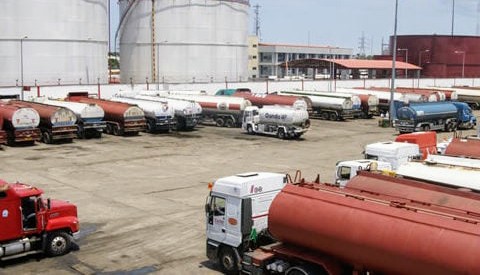The federal government and key petroleum product marketers have proposed new measures to address rising road accidents involving petrol tankers.
They shared their views during a webinar organised by the Major Energy Marketers Association of Nigeria in Lagos on Thursday.
The stakeholders expressed concern over the recent tanker accidents, which had led to the loss of lives and extensive property damage, and were at the centre of the discussion.
The webinar attracted government officials, regulators, and other industry stakeholders, all sharing valuable insights on improving safety in petroleum logistics.
In his address, Minister of State for Petroleum Resources (Oil), Heineken Lokpobiri, expressed concern over the increasing number of casualties from tanker accidents in the country.
He stated the need for improved training of tanker drivers, the installation of leak detection systems, and other safety measures to support drivers.
Mr Lokpobiri also urged petroleum marketers and the Federal Road Safety Corps to enhance collaboration, particularly in driver training.
Also, Minister of State for Petroleum Resources (Gas), Ekperikpo Ekpo, reaffirmed the government’s commitment to creating an enabling environment for the safe transportation of petroleum products.
Mr Ekpo said alternative, safer transportation methods such as pipelines and railways should be considered. He also supported initiatives for better driver training and stricter enforcement of safety regulations within the sector.
Earlier in the forum, MEMAN chairman Huub Stokman revealed that the association had developed a comprehensive training manual for its members’ truck drivers.
Mr Stokman stressed that continuous training and strict adherence to safety measures are essential to reducing tanker-related accidents.
Yusuf Othman, national president of the Nigerian Association of Road Transport Owners, called for increased support from marketers and the association’s efforts to phase out ageing and unsafe petrol tankers.
Mr Othman identified old vehicles as a significant factor in accidents. He highlighted the association’s involvement in the federal government’s Compressed Natural Gas initiative, which offered a safer and more cost-effective alternative for transporting petroleum products.
Mr Othman reiterated the importance of ongoing driver training and adherence to safety policies.
Femi Adewole, executive secretary of the Depot and Petroleum Products Marketing Association of Nigeria, emphasised that his association ensured high truck maintenance and driver education standards.
However, Mr Adewole pointed out that many smaller transporters, who operated with limited resources, struggled with truck maintenance and adequate driver training, which could increase safety risks.
He called on the government to provide financial assistance, such as loans, to help transporters upgrade their fleets with modern and safe tankers.
He added that the collaborative efforts outlined by the government and industry stakeholders were designed to improve safety in petroleum products transportation and prevent further tragic incidents on the roads.
(NAN)

